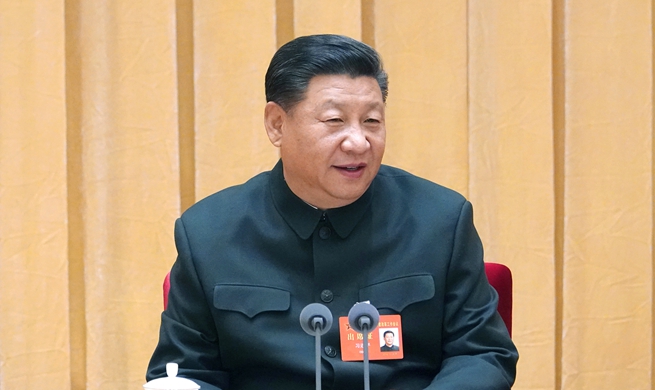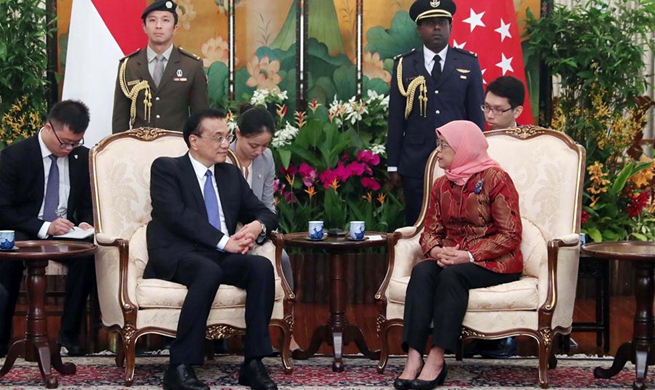by Xinhua writers Gui Tao, Gu Zhenqiu, Peter Barker
LONDON, Nov. 14 (Xinhua) -- China's 40-year struggle to lift hundreds of millions of people out of poverty was labeled as "phenomenal" by the director of the London School of Economics (LSE).
"The massive reduction in poverty which has been achieved in an incredibly short amount of time is remarkable," LSE director Minouche Shafik told Xinhua in a recent exclusive interview.
"I think that has come as a result of China being very good at drawing on international experience, and adapting it to local circumstances," she said, adding that China is "really better than any country I know at scaling up."
"Running a pilot and then doing it on a national scale -- there are few countries that have done it quite as successfully," Shafik said.
The LSE director, also former deputy managing director at the International Monetary Fund and former vice president of the World Bank, said she has been following China's economic progress "very closely," adding that "the Chinese economy has done remarkably well in recent decades."
She also pays close attention to China's reforms and opening-up that have transformed the nation's economy. "The reduction in poverty has been phenomenal."
Also as former deputy governor of the British central bank, the Bank of England, Shafik pointed out new challenges the world's most populous country and the second-largest economy now must tackle.
Shafik said such challenges include the middle-income trap, the transition from an export-oriented economy to one that relies more on domestic consumption, and how to ensure financial stability when leverage and debt in the economy have grown.
She also brought up challenges of building an "affordable and sustainable" modern social safety net, as well as environmental sustainability.
Moreover, Shafik hailed the cooperation between the LSE and some Chinese universities, highlighting strong partnerships with China's Fudan University and Peking University, both holding summer schools in partnership with the LSE, as well as longer and more formal academic courses.
About 10 percent of the LSE's student body are Chinese, Shafik said. "Our Chinese students are very clever, and very able."
The director also mentioned some of the implications of the 2016 referendum, which set Britain on a path to leave the European Union (EU), for many British institutions, including the LSE, because of the transformation that Brexit might bring to the free movement of people between the EU and Britain.
She said the LSE, with 70 percent of students coming from all over the world, could face problems in recruiting and retaining talented academic staff and students.
Yet she underlined that Brexit or no Brexit, the LSE wants to remain very much open for business. "The LSE is a university that's very engaged with the world."

















